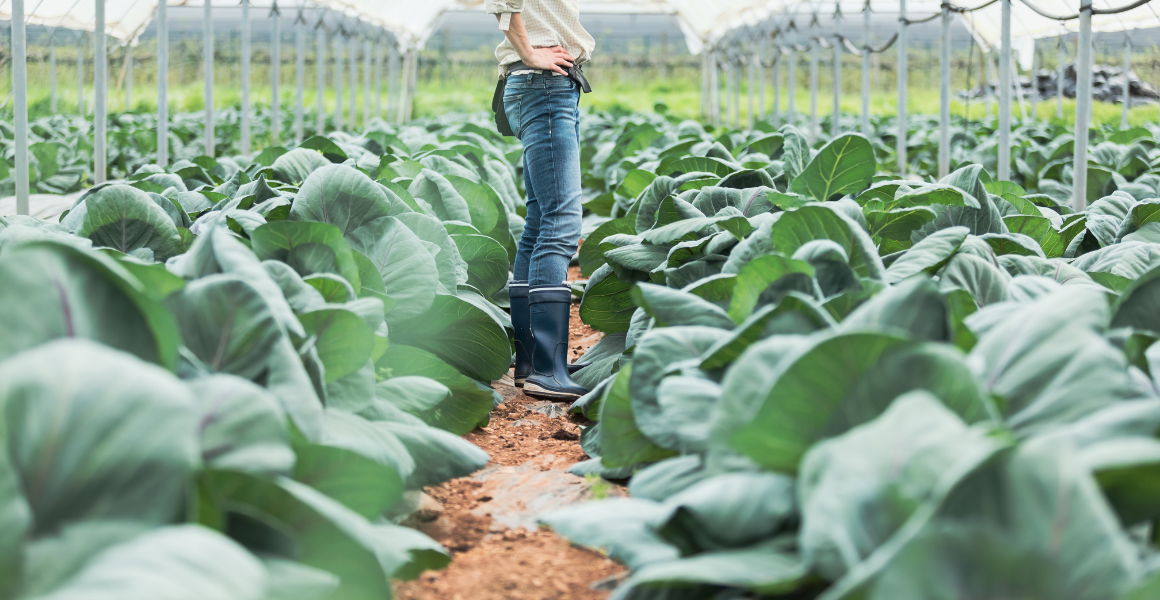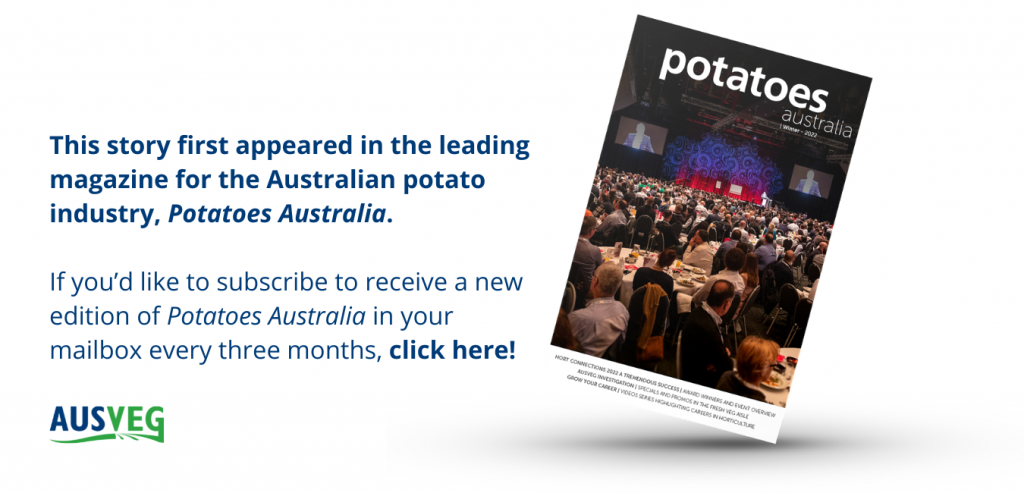Visas available to Australian potato growers
For Australian potato growers there are three common visas that can be used to recruit workers, including the Working Holiday Maker (WHM), Pacific Australian Labour Mobility (PALM) Scheme and the Horticulture Industry Labour Agreement (HILA).
Each of these visas cover different skill levels, occupations, time frames, participating countries and cost. See below for a breakdown of each visa and its requirements. Each of these Visas require employers to ether be accredited employers or an approved sponsor. More information on accreditation and sponsorship requirements can be found on each of the visa factsheets.
Working Holiday Maker (WHM) Program
The Working Holiday Maker Program allows young adults to have a 12-month holiday in Australia whilst undertaking short-term work and/or study.
There are two subclasses in the WHM Program:
- Work and Holiday Visa (subclass 462)
- Working Holiday Visa (subclass 417)
There are a few key differences between these visas, including:
- Different partnering countries.
- The 462 visa has an education requirement, but the 417 visa does not.
- The 462 visa also requires letters of support from governments from certain countries and requires a functional level of English.
Workers on their first year WHM visa can undertake work in any industry and location in Australia. To be eligible for a second- or third-year visa, they must complete either three or six months of ‘specified work’. Details on specified work options can be found here > Specified work for Working Holiday visa (subclass 417) (homeaffairs.gov.au).
Specific work roles in horticulture can include the following:
- Harvesting and/or packing of fruit and vegetable crops.
- General maintenance crop work.
- Cultivating or propagating plants, fungi or their products or parts.
- Immediate processing of plant products.
Worker requirements:
- Must have a passport from an eligible country.
- Must not be accompanied by dependent children.
- Allows visa holders to study for up to 4 months.
- Allows visa holders to travel to and from Australia as many times as they want.
From January 2022, WHMs working in any sector anywhere in Australia may continue to work for the same employer or organisation for longer than six months without requesting permission. This arrangement will be in place until 31 December 2022 when it will be reviewed by the Government.
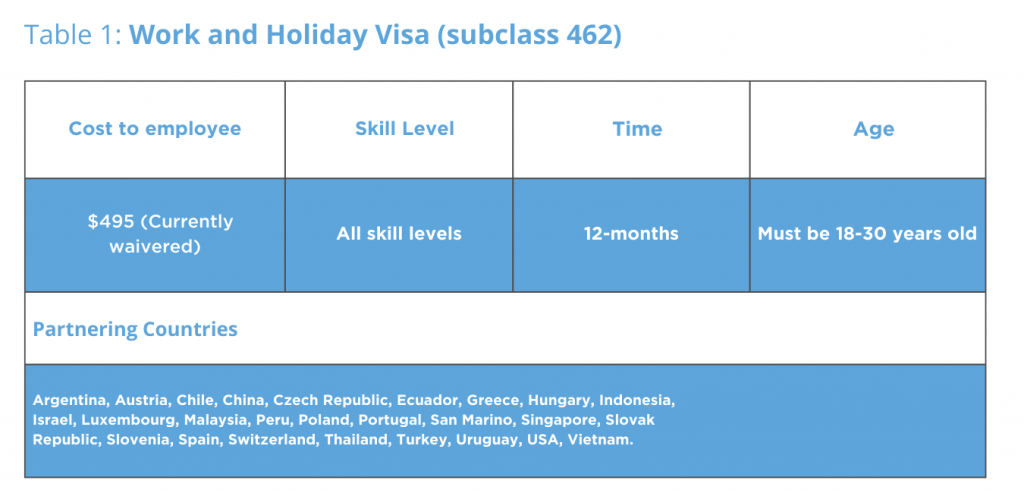
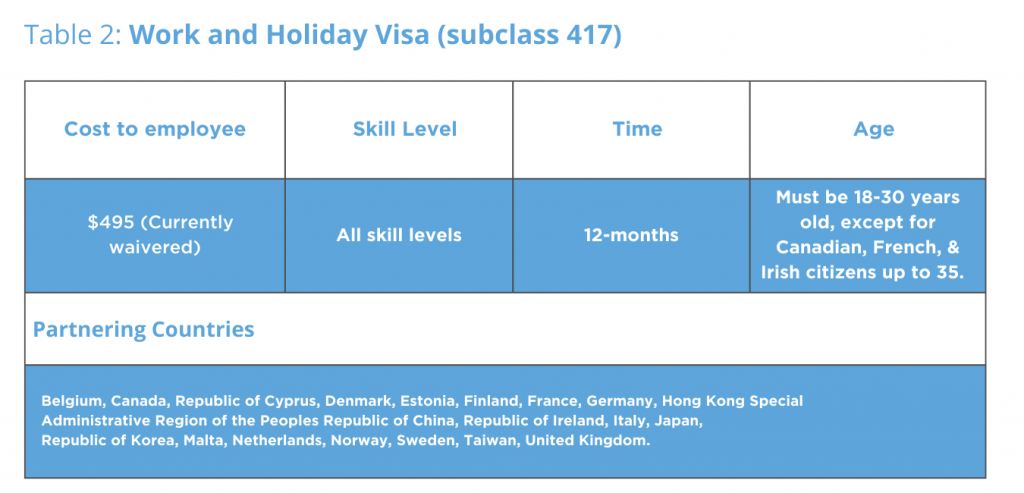
Pacific Australia Labour Mobility Scheme (PALM)
The PALM Scheme allows employers to hire workers from nine Pacific Islands and Timor-Leste when there are not enough domestic workers available.
On 4 April 2022, the Temporary Work (Internal Relations) visa (subclass 403) Pacific Australia Labour Mobility (PALM) stream was introduced. The new PALM scheme visa consolidated and replaced the Seasonal Worker Program (SWP) and Pacific Labour Scheme (PLS) into a single visa scheme.
The scheme offers a long-term (up to four years) and seasonal (up to nine months) option.
Worker requirements:
- Hold or obtain a valid passport.
- Be physically fit and healthy for the work specified.
- Have no criminal record.
- Be of good character.
- Have the right qualifications and/or work experience.
- Have an intention to return to their participating country.
- Have a reasonable standard of English (for longer-term workers only).
Under the PALM scheme workers can only undertake specified work within specific industries such as Agriculture. To sponsor a Pacific worker, you must demonstrate that you:
- Are an eligible business registered and operating in Australia.
- Are NOT an individual, sole trader or unincorporated company,
- Are an approved employer under the PALM scheme,
- Hold a DHA Temporary Activities Sponsorship (TAS).
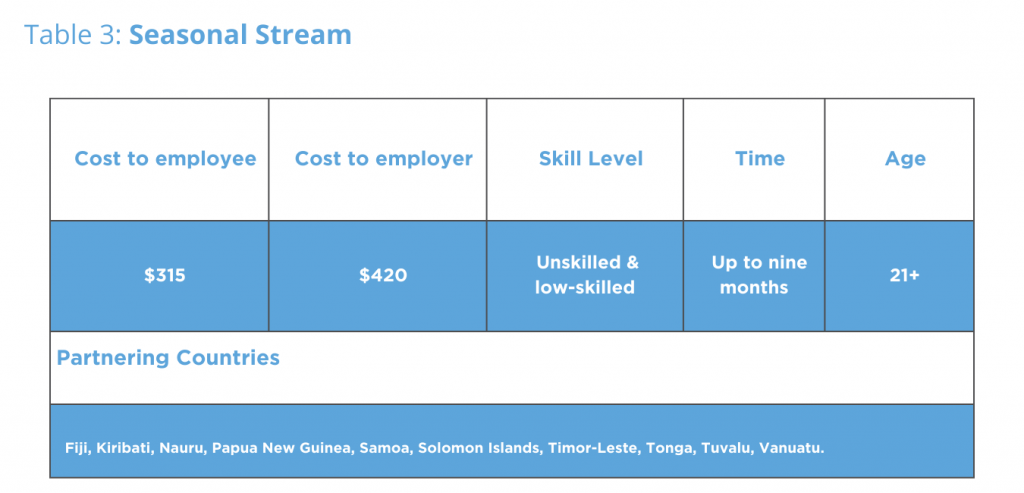
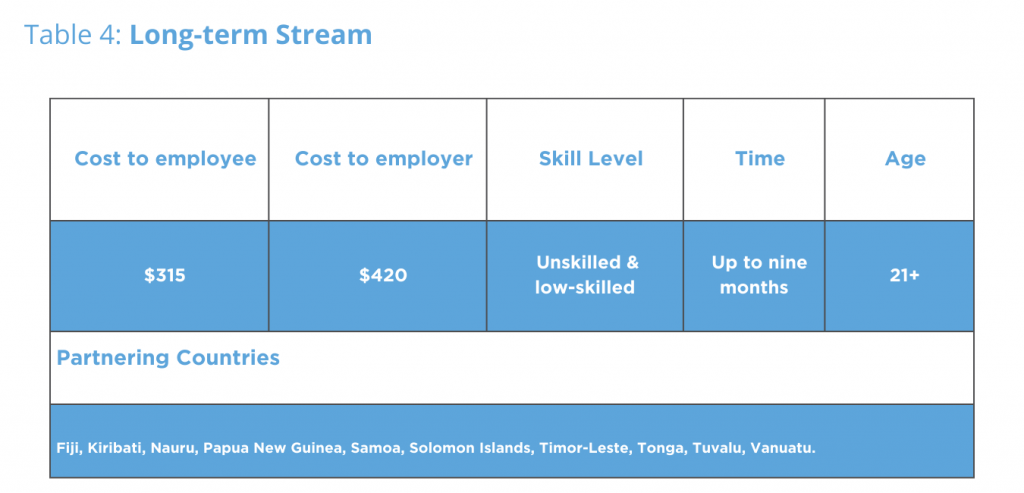
Horticulture Industry Labour Agreement (HILA)
The HILA increases access to skilled and semi-skilled migrant workers for the horticulture industry when qualified Australians are unavailable. The HILA has an age cap of 50 years old and provides pathways for permanent residency.
Under the HILA an employer can sponsor workers under the Temporary Skill Shortage (TSS) (subclass 482) visa for a total of 31 approved occupations.
The HILA covers 31 critical occupations in the horticulture industry including:
- Irrigation Designer/ Manager
- Agronomist
- Horticulture Grower
- Protected Cropping Grower
- Horticulture Research & Development Officer
- Mechanical Engineer
- Horticulture Farm Manger
- Quality Assurance Manager
- Biosecurity Officer
- Facility Plant Manager
- Facility Supervisor
- Maintenance Electrician
- Fitter and Welder
- Agricultural Technician
- Mechanic
- Senior Nurseryperson
- Nurseryperson
- Nursery Supervisor
- Truck Driver
- Mobile Plant Operator
- Forklift Driver
- Irrigationist
- Irrigationist Assistant
- Horticulture Section Manager
- Section Supervisor
- Production Horticulture Supervisor
- Machinery Manager
- Machinery Supervisor
- Cold Storage Manager
To use the HILA, growers must be a Standard business sponsor which assesses businesses to ensure they are fit to sponsor an applicant.
See more information on becoming a Standard business sponsor here: Become a sponsor Standard business sponsor (homeaffairs.gov.au).
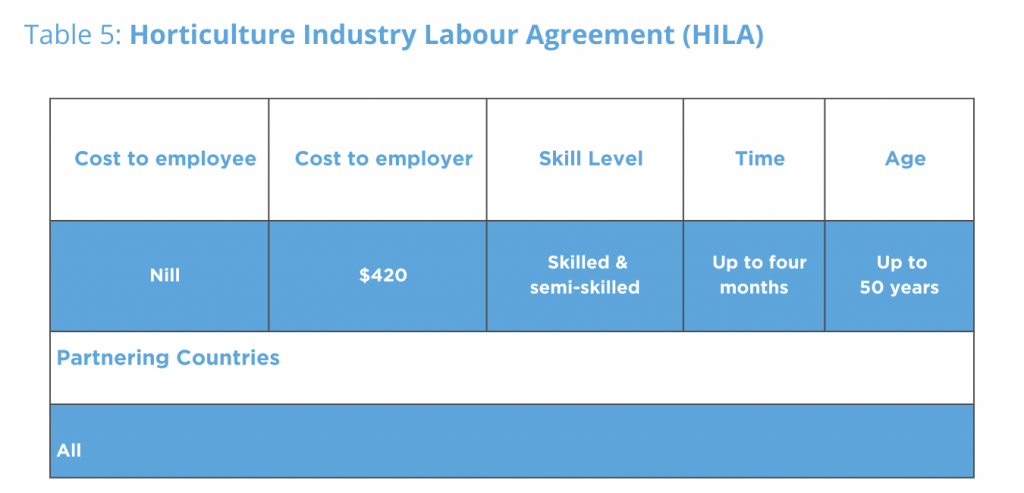
The Australian Agriculture Visa (Ag Visa)
AUSVEG has consistently called for a clear commitment from all major parties during the election campaign to continue delivering the Ag Visa to ensure that the industry is able to secure a competent and reliable workforce.
AUSVEG has been heavily involved in the design of the Ag Visa and has been a key driver for its implementation, highlighting its importance to government for a number of years. The signing of Vietnam onto the visa now confirms its willingness to participate in the visa, and also represents a commitment to the visa settings proposed by industry in consultation with government.
AUSVEG will continue to advocate to all sides of politics to commit to and support the Ag Visa. For the most up to date information on the Australian Agriculture Visa, visit dfat.gov.au/people-people/international-labour-mobility/australian-agriculture-visa.
Ensuring the Ag Visa meets the needs of producers is a high priority for the industry. The Ag Visa was designed to be a long-term structural change for the industry to access a more efficient and effective workforce and reduce its reliance on working holiday makers.
It’s disappointing the ALP Government has not committed to the Ag Visa. However, AUSVEG will continue to engage with Minister Watt and the Albanese Government to advocate strongly for the Ag Visa, or a reasonable replacement, to increase the pool of workers available to fruit and vegetable growers as a high priority.
For more information: contact AUSVEG on 03 9882 0277.

